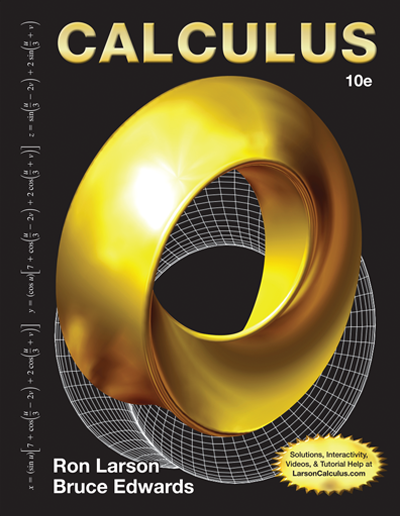John Bernoulli
(1667 – 1748)
The accomplishments of the Bernoulli family are legendary in the history of mathematics. Never before or since has one family produced eight extraordinarily gifted mathematicians in the span of three generations.
The Bernoullis originated in Antwerp but fled to Switzerland in 1583, when their Protestant faith in Catholic Belgium endangered their lives. In Basel, John’s great-great-grandfather established himself as a merchant. Three succeeding generations of Bernoullis tended the family business, and in the process garnered enormous wealth. That they were so successful suggests a latent mathematical talent.
Born in Basel on August 6, 1667, John Bernoulli was among the first of his family to be recognized as a mathematical genius. John’s first mathematics teacher was his equally gifted older brother, James, who was then a professor at the University of Basel. At first, John deferred to James and relations between the two were amicable; however, as John’s knowledge burgeoned, so too did his desire to surpass his brother James in reputation.
John’s progress in mathematics was thus spurred by his intensely competitive nature. James, in turn, struggled to maintain his own mathematical supremacy. Eventually, all pretense of affection was abandoned and the brothers were at war; their respective mathematical discoveries were the shots they fired at one another. They shamelessly plagiarized each others work and publicly ridiculed each other’s errors. John was especially unscrupulous: on one occasion he stole his brother’s paper outright and attempted to submit it as his own for a prize. When the great mathematician Leibniz, a diplomat by profession, sought to intervene, James accused him of favoring John. From that time on, James allied himself with those who favored Newton’s claim of priority over Leibniz in the discovery of the calculus.
John was so relentlessly competitive that when the French Academy awarded to John’s son Daniel a prize that John had expected to receive himself, John drove Daniel from his home in a jealous rage.
An incident involving the French mathematician Guillaume F. A. L’Hôpital was even more infuriating. John Bernoulli had consented to tutor L’Hôpital in the calculus and had also agreed to sell L’Hôpital the rights to Bernoulli’s research. Bernoulli taught L’Hôpital primarily through correspondence. His letters to his student explained the calculus in careful detail and kept L’Hôpital apprised of new theorems as they emerged. Bernoulli’s collected letters were published by L’Hôpital in 1696 as the first calculus textbook, the Analyse des infiniment petits. Because L’Hôpital had purchased Bernoulli’s letters and the rights to Bernoulli’s discoveries, L’Hôpital’s name, not Bernoulli’s, appeared on the title page of the text. In addition, Bernoulli’s method of finding limiting value of fractions of the type 0/0 became known as L’Hôpital’s Rule. Bernoulli was incensed that his letters and one of his most important discoveries had been attributed to the man he had tutored. Bernoulli publicly accused L’Hôpital of plagiarism as soon as L’Hôpital was dead and therefore unable to explain the terms of their agreement.
Despite Bernoulli’s failings, he was a brilliant mathematician and an exceptional teacher. Among Bernoulli’s students was the spectacularly gifted and prolific mathematician, Leonhard Euler. Bernoulli is said to have inspired Euler to devote his life to mathematics; this was, arguably, Bernoulli’s most significant achievement.
John and his brother James were, after Newton and Leibniz, at the forefront of the development of the calculus. The formula for the radius of curvature of a curve, the exponential calculus, and the determination of orthogonal trajectories, are among their many contributions. John was also instrumental in effecting the adoption on the Continent of Leibniz’s calculus over that of Newton.
John Bernoulli died in Basel on January 1, 1748, at the age of eighty.
Links
http://www-history.mcs.st-andrews.ac.uk/Biographies/Bernoulli_Johann.html
http://www.famous-mathematicians.com/johann-bernoulli/
References
- Ball, W. W. Rouse. A Short Account of the History of Mathematics. 1908. Reprint. New York: Dover Publications, Inc., 1960.
- Bell, E. T. Men of Mathematics. New York: Simon & Schuster, Inc., 1986.
- Burton, David M. The History of Mathematics. 2d ed. Dubuque, IA: Wm. C. Brown Publishers, 1988.
- Dunham, William. Journey Through Genius: The Great Theorems of Mathematics. New York: John Wiley & Sons, Inc., 1990.
- Eves, Howard. An Introduction to the History of Mathematics. 6th ed. Fort Worth: Saunders College Publishing, 1992.
- Gillispie, Charles Coulston, ed. Dictionary of Scientific Biography. Vol. II. New York: Charles Scribner’s Sons, 1970.
- Hollingdale, Stuart. Makers of Mathematics. London: Penguin Books, 1989.
- Hooper, Alfred. Makers of Mathematics. New York: Random House, Inc., 1948.
- Simmons, George F. Calculus Gems: Brief lives and Memorable Mathematics. New York: McGraw-Hill, Inc., 1992.
- Struik, Dirk J. A Concise History of Mathematics. New York: Dover Publications, Inc., 1987.











